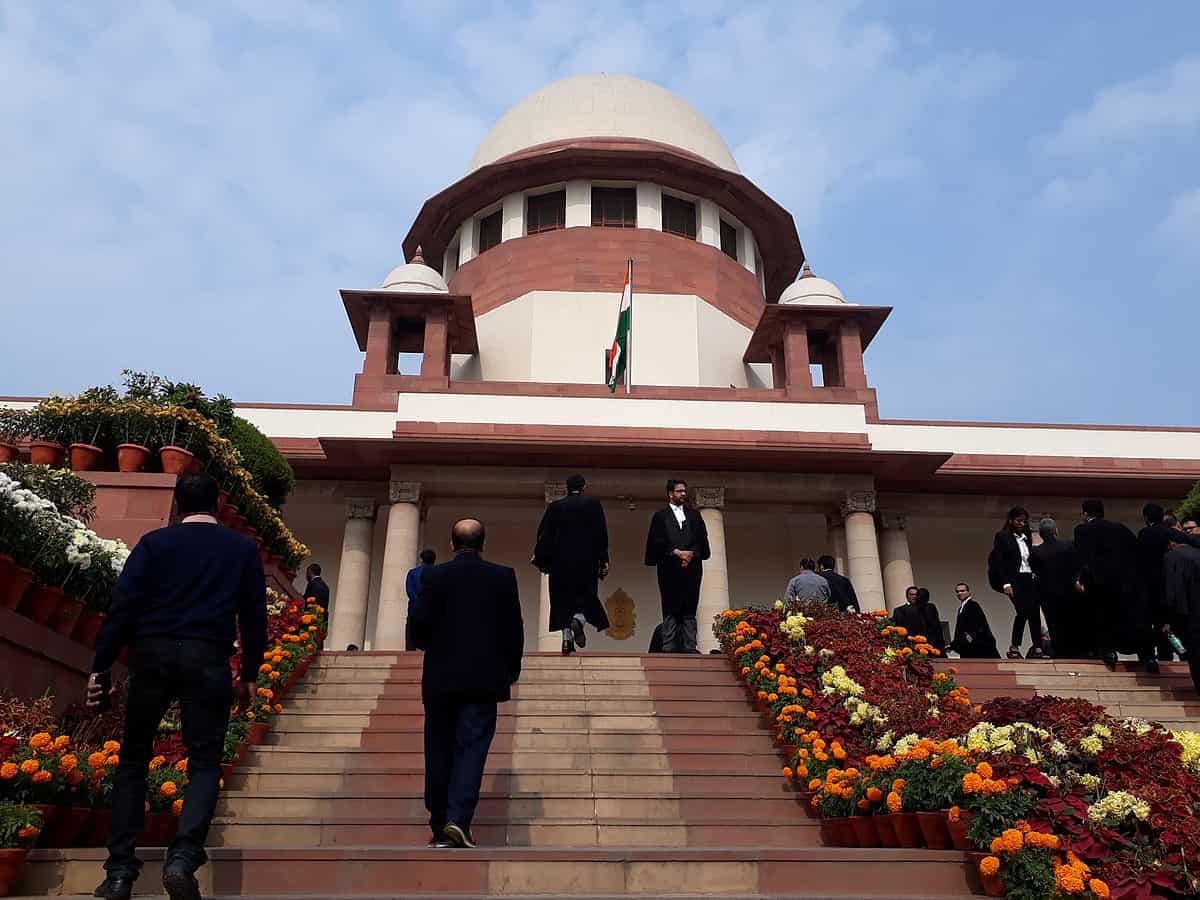
New Delhi: The Supreme Court has said that powers under the preventive detention law are “exceptional” and cannot be exercised in a routine manner as it strikes hard on the freedom and liberty of an individual.
The apex court observation came as it set aside the order of detention of two persons in Telangana in October last year.
The detention order was passed by the Commissioner of Police, Rachakonda Commissionerate, on the grounds that these two persons were involved in gold chain snatching offences, wherein the victims were mostly women.
A vacation bench of Justices C T Ravikumar and Sudhanshu Dhulia noted that although according to the authority, the detenus were involved in more than 30 cases but only four cases of chain snatching were considered as ground for detention, as the other cases were reported to be behind the proximity period and out of the jurisdiction of the commissionerate.
The top court also noted that offences in these four cases were allegedly committed within a span of two months between May 6 and July 26 last year and both the detenus were granted bail by the magistrate in these cases.
“The powers to be exercised under the preventive detention law are exceptional powers which have been given to the government for its exercise in an exceptional situation as it strikes hard on the freedom and liberty of an individual, and thus cannot be exercised in a routine manner, the bench said.
The apex court passed the orders on June 22 on two separate petitions filed by the wives of the detenus.
The petitioners had challenged the Telangana High Court’s order on March 25 this year dismissing their pleas against the preventive detention.
In its order, the top court noted that one of reasons assigned by the authority justifying the invocation of the provisions of detention law was that the detenus were granted bail in all the four cases and were likely to indulge in similar crime.
“The reason why bail was granted in all four cases, however, has not been given. Bail was granted in all the four cases due to the inability of the prosecution, which did not complete its investigation in time. The bail had to be given as the charge sheet was not filed by the police in all the cases within the stipulated period of 60 days. The fault thus lies with the prosecution, the bench said.
It observed that the facts and circumstances of the case, as alleged in the detention order, does reflect a law and order situation which can be dealt with under the ordinary law of land and there was absolutely no occasion for invoking the extraordinary powers under the law of preventive detention.
The apex court said invocation of the preventive detention law in this case against the two persons was not justified .
It said the distinction between law and order situation and a public order situation has been dealt with by the apex court in a catena of decisions.
“In fact, in a recent decision of this court, the court had to make an observation regarding the routine and unjustified use of the preventive detention law in the state of Telangana, the bench noted.
It said the state is not without a remedy, as in case the detenu is so much a menace to the society as is being alleged, then the prosecution should seek cancellation of bail or move an appeal to the higher court.
“But definitely seeking shelter under the preventive detention law is not the proper remedy under the facts and circumstances of the case,” it said.
The bench noted that the detention order said that crimes were committed in broad daylight and have thus resulted in creation of fear and panic in the minds of public, especially women, and hence, the government had to interfere in order to maintain public order .
While allowing the appeals, the bench set aside the order of detention as well as the order of the high court and said the detenus shall be released forthwith in case they are not required in any other case.
